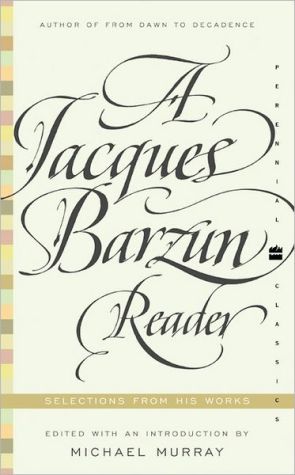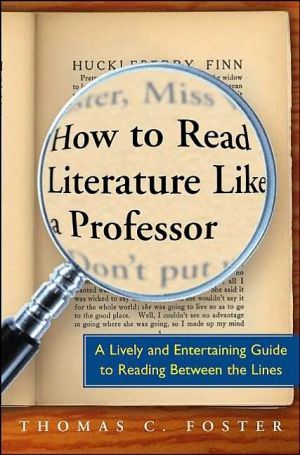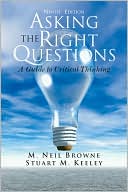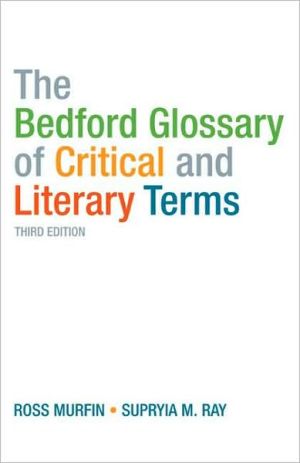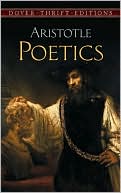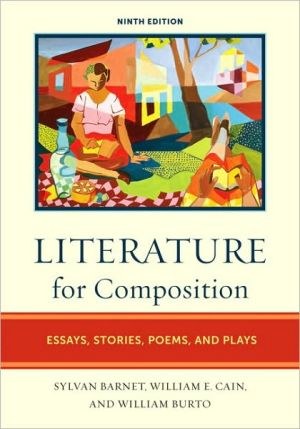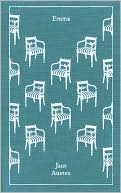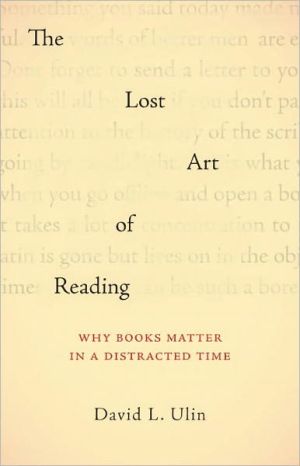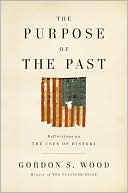Jacques Barzun Reader: Selections from His Works
Throughout his career Jacques Barzun, author of the New York Times bestseller and National Book Award Finalist From Dawn to Decadence, has always been known as a witty and graceful essayist, one who combines a depth of knowledge and a rare facility with words.\ Now Michael Murray has carefully selected eighty of Barzun's most inventive, accomplished, and insightful essays, and compiled them in one impressive volume. With subjects ranging from history to baseball to crime novels, A Jacques...
Search in google:
Throughout his distinguished career, Jacques Barzunhas been known as an essayist who combines a depth of knowledge and a rare facility with words. Now, collected for the first time in one volume are 80 of his most accomplished essays. The list of subjects covered has an amazing range: history, philosophy, literature, education, music—and more. Here is Barzun's classic examination of baseball in American life, Lincoln as a literary genius, and the pleasures of reading crime fiction.Among the many diverse figures whom Barzun re-examines, leading to fresh portraits, include: Shaw, Berlioz, Swift, both Henry and WilliamJames, Dorothy Sayers, Chapman, Agate, and Diderot. Barzun draws the reader into his enthusiasms with an infectious style and keen insights. A Jacques Barzun Reader is a feast for any reader.Publishers WeeklyH Beginning with Barzun's fearless argument for the centrality of race in Western consciousness in his 1937 essay "Race: Fact or Fiction?," and concluding with several selections from 2000's epic bestseller, From Dawn to Decadence, this is a staggering tribute to eber-critic Barzun's legendary intelligence and cantankerousness. Literature is a prime topic: his essays on Swift, Diderot and Shaw brilliantly revitalize well-worn subjects, while "How the Romantics Invented Shakespeare" intriguingly probes the historiography of the Bard's ever-changing reputation. Barzun's own occupation is another dominant concern; Barzun asks, is criticism art or craft?, coming down, conclusively, on the side of craft. Other topics include opera, politics, baseball and Paris in the 1830s. What truly impresses here is Barzun's breadth of knowledge in an age of academic specialization, he is a rare, confident master-of-all-trades. Barzun is also unafraid of being silly, as in a brief aside on the "puncreas," a gland that, when inflamed, causes people to "puncreate" uncontrollably. Of course, readers may not agree with all Barzun's conclusions: he can be exasperatingly arbitrary (detective novels are great but spy novels are not); he can also seem foggily behind the times (as with his fierce defense of "man" as a gender-neutral term). But, taken as a whole, these more than six dozen essays constitute one of the great critical collections of recent times and amply showcase one of the outstanding scholarly intellects of the last century. (Jan.) Forecast: From Dawn to Decadence may have created a new audience for Barzun, though this, a collection of previously published material, will probably get less media attention. Still, this should be a steady, long-term seller. Copyright 2001 Cahners Business Information.
Chapter One\ \ \ Toward a Fateful Serenity\ \ \ The will is free, but who can account for his own acts and opinions without invoking inþuences and accidents? Would I have devoted my life to reading and teaching history, would I feel so keenly the passing of an era -- Þve hundred years of high creation going down in confusion; would I, instead of repining, cultivate and recommend a spirited pessimism if I had not had, at a particular time and place, a vivid sight of an earlier world, soon followed by its collapse in wretchedness and folly?\ Growing up before the First World War in an artistic milieu in Paris and also a conventional one in Grenoble, furnished the mind of the child I remember with two main perceptions. One was that making works of art by exerting genius was the usual occupation of adults; the other was that such a life was hedged about by traditions, manners, and prosperity.\ Needless to say, neither of these notions was explicit -- or abstract as in the retelling. But faith in their reality encouraged a precocious interest in all subjects, persons, ideas, and words half-understood. The joy of being was the joy of being there: the zest for life was tied to the spectacle of good things being done with conÞdent energy.\ The outbreak of war in August 1914 and the nightmare that ensued put an end to all innocent joys and assumptions. The word Never took on dreadful force. News of death in every message or greeting, knowledge that cousins, uncles, friends, teachers, and Þgures known by repute would not be seenagain; encounters at home and in the street or schoolyard with the maimed, shell-shocked, or gassed, caused a permanent muting of the spirit. This emotional darkness in daylight was punctuated by the hysterical outbursts of suddenly grief-stricken women and the belief of some in "communications from the dead" that sounded grimly absurd even to a child.\ Throughout, poisoning all other sentiments, was the continual outpouring of public hatred. By the age of ten -- as I was later told -- my words and attitudes betrayed suicidal thoughts; it appeared that I was "ashamed" to be still alive. Steps were taken: before the end of the school term in 1918 I was bundled off to the seashore, away from "events," including the bombardment of Paris by Big Bertha and the scurrying to cellars during air raids.\ With beach life and surrender to a great lassitude, calm slowly returned, helped out by reading adventure stories. But it was not Gulliver and Robinson Crusoe alone who restored the will to live: it was also Hamlet. I had taken him off the shelf in Paris, not in secret but unnoticed, and I brought him away with me. The opening scene promised a good ghost story.\ As I read on, I discovered that the rotten state of Denmark was the state that had overtaken my world: hatred,suspicion (spies were seen everywhere), murderous fury, unending qui vive. It contradicted all the assurances of the catechism. But what could be reinvigorating about Hamlet? Well, to begin with, his skill in warding off menaces from all sides; he was the equal of Crusoe in survival. And especially comforting was his ability to overcome his doubts in the terrible murkiness of his situation. His death at the end was a þuke, not a failure; Fortinbras said what a good king he would have made "had he been put on."\ Thus were the trials of my young life made coherent in a view of Hamlet I have never found reason to alter. My bewilderment and pain were transmuted by a story into a kind of armor. Later reverses of fortune could bruise but not wound.\ In any age, life confronts all but the most obtuse with a set of impossible demands: it is an action to be performed without rehearsal or respite; it is a confused spectacle to be sorted out and charted; it is a mystery, not indeed to be solved, but to be restated according to some vision, however imperfect. These demands bear down with redoubled force in times of decay and deconstruction, because guiding customs and conventions are in disarray. At Þrst, this loosening of rules looks like liberation, but it is illusory. A permissive society acts liberal or malignant erratically; seeing which, generous youth turns cynic or rebel on principle.\ Either option is almost certain to end in waste and regrets; and anyhow, disillusion should be a one-time misadventure, not a lifelong grievance. But to avoid resentment requires a clear alternative, some purpose to turn the aggressive reaction away from the self or from the image of the world as Grand Conspirator. The purpose I gradually fashioned took the form of a resolve to Þght the mechanical.\ Such a struggle has nothing to do with the popular cursing of machinery. Machines are admirable and tyrannize only with the user's consent, absent-mindedness, or laziness. Yielding to the mechanical is still more culpable when it comes from ignoring the fact that Nature, which we are taught to see as a machine, contains the unmechanical mind of man -- which it is a disgrace and a danger to let lapse into automatism.\ Where, then, is this enemy? Not where the machine gives relief from drudgery but where human judgment abdicates. Any ossiÞed institution -- almost every bureaucracy, public or private -- manifests the mechanical. So does race-thinking -- a verdict passed mechanically at a color-coded signal. Ideology is likewise an idea-machine, designed to spare the buyer all further thought. Again,"methods" substituted for reading books and judging art are a perversion of what belongs to science and engineering: "models," formulas, theories. Specialism too turns machine-like if it never transcends its single task. The smoothest machine-made product of the age is the organization man, for even the best organizing principle tends to corrupt, and the mechanical principle corrupts absolutely.\ Language itself, the most þexible expression of mind, has succumbed...\ A Jacques Barzun Reader. Copyright © by Jacques Barzun. Reprinted by permission of HarperCollins Publishers, Inc. All rights reserved. Available now wherever books are sold.
IntroductionIOn a Pragmatic View of LifeToward a Fateful Serenity3IIOn the Two Ways of Knowing: History and ScienceThe Search for Truths15History as Counter-Method and Anti-Abstraction19The Imagination of the Real26Cultural History: A Synthesis27Alfred North Whitehead34William James: The Mind as Artist35Thomas Beddoes, M.D.39Science and Scientism49Myths for Materialists69IIIOn What Critics Argue AboutCriticism: An Art or a Craft?79The Scholar-Critic87James Agate and His Nine Egos92The Grand Pretense103On Sentimentality107Samuel Butler108On Romanticism114Dorothy Sayers116John Jay Chapman120Remembering Lionel Trilling129IVOn Language and StyleRhetoric - What It Is; Why Needed149The Retort Circumstantial156The Necessity of a Common Tongue160The Word "Man"168On Biography172Venus at Large: Sexuality and the Limits of Literature175Onoma-Onomato-Onomatwaddle186VOn Some ClassicSwift, or Man's Capacity for Reason193Why Diderot?203William Hazlitt213How the Romantics Invented Shakespeare216Bernard Shaw231Goethe's Faust235When the Orient Was New: Byron, Kinglake, and Flaubert250The Permanence of Oscar Wilde272Bagehot as Historian284Lincoln the Literary Artist293The Reign of William and Henry304VIOn Music and DesignWhy Opera?323Is Music Unspeakable?324Music for Europe: A Travers Chants337To Praise Varese354Delacroix358Visual Evidence of a New Age362Museum Piece 1967366Why Art Must Be Challenged374VIIOn Teaching and LearningThe Art of Making Teachers387Where the Educational Nonsense Comes From391Occupational Disease: Verbal Inflation392The Centrality of Reading396The Tyranny of Testing401History for Beginners404Of What Use the Classics Today?412The University's Primary Task423The Scholar Is an Institution424Exeunt the Humanities426VIIIOn America Past and PresentOn Baseball437Race: Fact or Fiction?443Thoreau the Thorough Impressionist447The Railroad465The Great Switch470Is Democratic Theory for Export?473Administering and the Law488The Three Enemies of Intellect492An American Commencement509IXOn France and the FrenchParis in 1830519Food for the NRF539French and Its Vagaries545Flaubert's Dictionary of Accepted Ideas553XOn Crime, True and Make-BelieveThe Aesthetics of the Criminous563Rex Stout564A Catalogue of Crime567Why Read Crime Fiction?571The Place and Point of "True Crime"578Meditations on the Literature of Spying581XIA MiscellanyDefinitions591Jottings593Clerihews595Ars Poetica597Bibliography599Index of Names605
\ Publishers WeeklyH Beginning with Barzun's fearless argument for the centrality of race in Western consciousness in his 1937 essay "Race: Fact or Fiction?," and concluding with several selections from 2000's epic bestseller, From Dawn to Decadence, this is a staggering tribute to eber-critic Barzun's legendary intelligence and cantankerousness. Literature is a prime topic: his essays on Swift, Diderot and Shaw brilliantly revitalize well-worn subjects, while "How the Romantics Invented Shakespeare" intriguingly probes the historiography of the Bard's ever-changing reputation. Barzun's own occupation is another dominant concern; Barzun asks, is criticism art or craft?, coming down, conclusively, on the side of craft. Other topics include opera, politics, baseball and Paris in the 1830s. What truly impresses here is Barzun's breadth of knowledge in an age of academic specialization, he is a rare, confident master-of-all-trades. Barzun is also unafraid of being silly, as in a brief aside on the "puncreas," a gland that, when inflamed, causes people to "puncreate" uncontrollably. Of course, readers may not agree with all Barzun's conclusions: he can be exasperatingly arbitrary (detective novels are great but spy novels are not); he can also seem foggily behind the times (as with his fierce defense of "man" as a gender-neutral term). But, taken as a whole, these more than six dozen essays constitute one of the great critical collections of recent times and amply showcase one of the outstanding scholarly intellects of the last century. (Jan.) Forecast: From Dawn to Decadence may have created a new audience for Barzun, though this, a collection of previously published material, will probably get less media attention. Still, this should be a steady, long-term seller. Copyright 2001 Cahners Business Information.\ \ \ \ \ Kirkus ReviewsFollowing the bestselling From Dawn to Decadence (2000), a sampler of Barzun's writings, selected and edited by his biographer, demonstrating again the depth and breadth of his learning, the originality of his thinking, and his commitment to speak to the general reader in engaging, intelligent prose. Arranged thematically, these 80 essays and excerpts present a man endlessly curious, and always ready to question his own assumptions. Included are pieces on criticism, science, the idea of race, Wilde, Shaw, mystery writers Chandler and Stout, American democracy, opera, and Faust. Each essay yields unexpected insights, and the volume as a whole makes clear why Barzun is probably our best-known public intellectual. Challenging, satisfying, elegant.\ \
